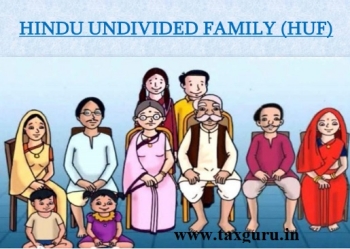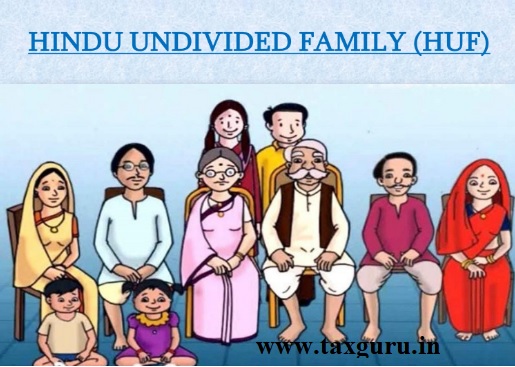
.png) Jaswant Kaur
Jaswant Kaur

The debate on the Uniform Civil Code (UCC) is back, albeit, with more rigour and passion. Recently, the Prime Minister gave it a new impetus. The 22nd Law Commission of India has been entrusted with the responsibility of soliciting views from all stakeholders.
Actually, the discussions on the topic started way back in 2016. The government’s efforts to introduce it as a Bill was scuttled by the Opposition. At that time, the 21st Law Commission was given the responsibility of collecting public opinion on the subject.
The commission submitted its report by the end of August 2018, clearly mentioning that “it has to be borne in mind that cultural diversity cannot be compromised to the extent that our urge for uniformity itself becomes a reason for threat to the territorial integrity of the nation”. In other words, the UCC has a huge potential to threaten the unique flavour and fervour that India is known for. It should have served as a warning for the government.
It is certainly not something that can be introduced in a haphazard manner, a la GST style, overnight with a lot of pomp and show. True, it has been mentioned in our directive principles of state policy. Yet, it has not found favour with the leadership over these 75 years because of the complications it presents in a country, where the people follow different religions, cultures, cults and sects.
Nevertheless, while aiming for aspirational objectives such as granting "equal status to all citizens", enhancing "gender parity", fostering "national integration", and reforming current personal laws, it is crucial to ensure that the existing benefits provided to citizens are not jettisoned.
One of the benefits that the proposed UCC may take away is the concept of the Hindu Undivided Family (HUF). Now many would say what exactly an HUF is. As the name suggests, it owes its existence to the joint family system, where the head of the family, called “karta”, assumes unquestioned authority while other members of the family become “coparceners” with equal right to ancestral property.
These members are descendants of a common ancestor, including the wives and unmarried daughters. The idea of a joint family system identifies the family as one unit, which offers a sense of security to its members.
The concept got legal recognition in the 19th century and was given a unique status in the Income Tax Act 1922, which continued even in the new Income Tax Act, 1961. The Act treats HUF as a person under Section 2(31) for the purpose of tax assessment. It is treated just like any other organisation with a distinct entity existing in the eyes of law, with several tax benefits while ensuring that the institution of the family stays intact.
An HUF’s income is considered for assessing tax if it has coparceners and a joint family property. This property should be made available to the family whether for running business or as a gift, in a will, as ancestral property. It could also be a property that has been acquired from joint family funds. In case a joint property is sold and the money so collected is parked in a common pool, then also, it satisfies the condition of being an HUF.
An HUF has been given more income tax benefits than any other person. For instance, person A has a salary income of Rs. 2 lakh and a rental income of say, Rs. 5 lakh. As per the current income tax rates, A shall be liable to pay taxes on Rs. 4.5 Lakh (assuming no savings/investments have been made under the old regime. A will get a standard deduction of Rs. 50,000 and tax exemption till Rs. 2.5 lakh).
On the contrary, if A is a member of HUF, and the rental income is from a joint property, A will not have to pay any taxes on Rs. 5 lakh or any share that A gets from Rs. 5 lakh. Besides, the HUF shall get tax exemptions just like an individual under Sections 80C, 80D, 80DD, 80DDB, and even 80TTA.
In addition, an individual is allowed to hold only one property (i.e. self-occupied) in his/her name. Any other residential property is assumed to be let out. Any income arising from properties other than the self-occupied one shall be liable to taxes. On the other hand, an HUF is exempt from taxes on one or more residential properties it holds. Not only this, an HUF can also take home loan just like an individual and claim deduction under Section 80C for principal and Section 24 for interest paid on home loan. In other words, HUF offered a huge tax advantage.
If UCC is implemented, the government will have two options. One, to remove the concept of HUF completely to bring parity among all religions. Two, to extend this concept to other religions to bring a sense of equality among all religions. It is highly likely the government may choose the first option as it will increase its tax collection. In other words, the concept of HUF may no longer be there.
Many would argue that joint families are being replaced by nuclear families in any case. However, if one looks at the figures released by the IT Department for the last few years, we can see an increase in the number of HUFs filing returns.
The UCC may pave the way to an end of HUF, which will take away the safety net that it posed during financial hardships. The common pool of financial resources used to get rid of the financial risks will no longer be there. It also acted as a boon for the small businesses while retaining the ownership with the family. The tax benefits offered to HUFs certainly encourages a sense of belonging, ownership and familial harmony and unity.
In case the government decides to do away with the concept of HUF, people will have to plan their taxes accordingly. Not only this, the IT Act will have to be amended. But this will affect crores of Hindus and also our social fabric. It certainly requires a lot of thought to make a decision on the UCC. HUF is just one issue. There are several contentious issues.
In fact, nothing much has changed since 2018 when the 21st Law Commission submitted its report. We are the same country with the same kind of diversity and issues. If we were not ready for such a law in 2018 how does it make any difference in another five years?
On the contrary, over the last five years, we have faced a lot, including a pandemic. Many communities have still not recovered from this jolt despite the fact that everything looks so hunky dory. We are not prepared to face another economic, cultural and social shock.
However, it seems the government has decided to speed up the process, just before the 2024 Lok Sabha elections. In fact, the general public has been asked to submit its views within 30 days from the notice i.e., June 14, 2023. One month is too short a period for the people to respond on such a critical issue like the UCC. A change like this should be slow and gradual, not made at a lightning speed.